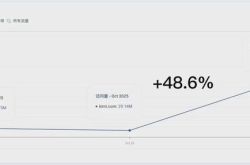Vietnam is also taking action, and the era of tax-free cross-border e-commerce is coming to an end
![]() 06/20 2024
06/20 2024
![]() 696
696

Image source: Pixabay
Relying on cost-effectiveness, Chinese sellers have flourished overseas. However, with tax adjustments on cross-border e-commerce small parcels in various countries, the price advantage of Chinese goods may be weakened.
According to media reports, on June 17, Vietnamese Finance Minister Hu Defu submitted a revised proposal for the "Value-Added Tax Law" to the National Assembly, which suggested that the government consider applying a 10% value-added tax rate on cross-border e-commerce small parcels. According to Vietnam's current laws, cross-border e-commerce small parcels are exempt from value-added tax.
Le Quang Meng, chairman of the Vietnamese National Assembly's Finance and Budget Committee, also revealed that there are currently about four to five million orders of parcels per day entering Vietnam through China. The value of these parcels is generally between 100,000 and 300,000 Vietnamese dong (approximately RMB 28-84).
Apart from Vietnam, Thailand, Malaysia, Indonesia, and other countries are also strengthening supervision on small parcels. The e-commerce market in Southeast Asia obviously cannot rely solely on "cheap" prices for its layout, and future challenges will continue to escalate.
01
Taxation is the general trend
Cross-border e-commerce is becoming a new business opportunity. However, overseas countries are continuously introducing new tax policies to ensure the development of local businesses.
In Southeast Asia, which is geographically adjacent and has the fastest growing global e-commerce scale, policies are also constantly being introduced.
In September 2023, Indonesia's Ministry of Trade issued Regulation No. 31 of the Minister of Trade of 2023. Among its provisions, cross-border e-commerce platforms are not allowed to sell imported goods priced below US$100 (approximately RMB 730).
A month later, Indonesia announced strengthened import restrictions on toys, electronic products, shoes, cosmetics, textiles, traditional medicines, health products, clothing, luggage, and other goods. Subsequently, Indonesia's Most Favored Nation tariffs on eight newly added commodities officially took effect, including 5%-25% tariffs on textiles, 5%-30% tariffs on footwear, 15%-20% tariffs on luggage, 10%-15% tariffs on cosmetics. Among the newly added goods, the tariff on imported bicycles is 25%-40%, with electric bicycles at 40%, watches at 10%, cosmetics at 10%-15%, and steel at 0%-20%.
In January 2024, Malaysia imposed a sales tax on low-value imported goods. Low-value goods (valued below 500 ringgit, approximately RMB 770) imported into Malaysia from abroad for online sales will be subject to a 10% low-value goods tax. From March 1, 2024, a 6% value-added tax will be imposed on logistics service fees generated from the delivery, distribution, and transportation of goods, documents, or parcels through e-commerce platforms.
Singapore stipulates that Singaporean consumers purchasing goods through cross-border channels, regardless of whether the price is higher than 400 Singapore dollars, need to pay a 9% consumption tax.
According to media reports, the Thai cabinet passed a bill in June to impose a 7% value-added tax on all imported goods sold on platforms without distinction. The Thai Ministry of Finance stated that this move was not targeted with any malice, as Thai businesses and merchants are required to pay value-added tax on their sales, and imposing value-added tax on imported goods can better create a fair competitive environment.
Previously, relying on a mature industrial supply chain, many inexpensive yet quality goods have gone abroad to Southeast Asia. It has been reported that the prices of imported







